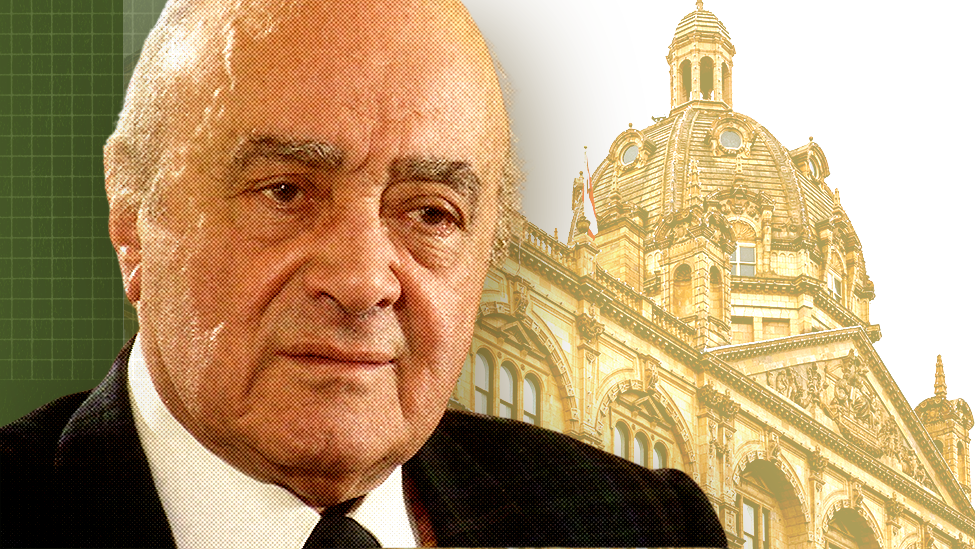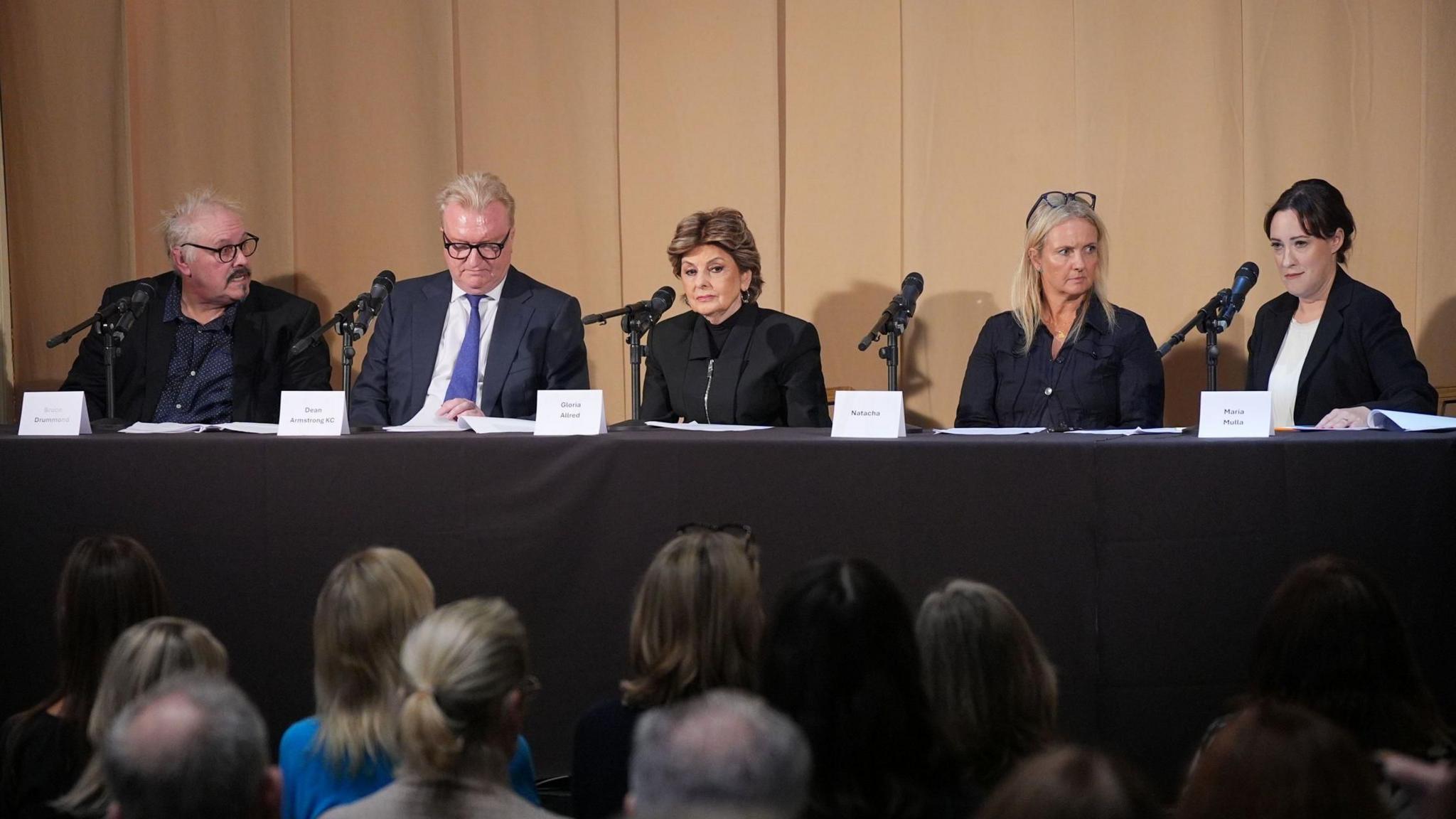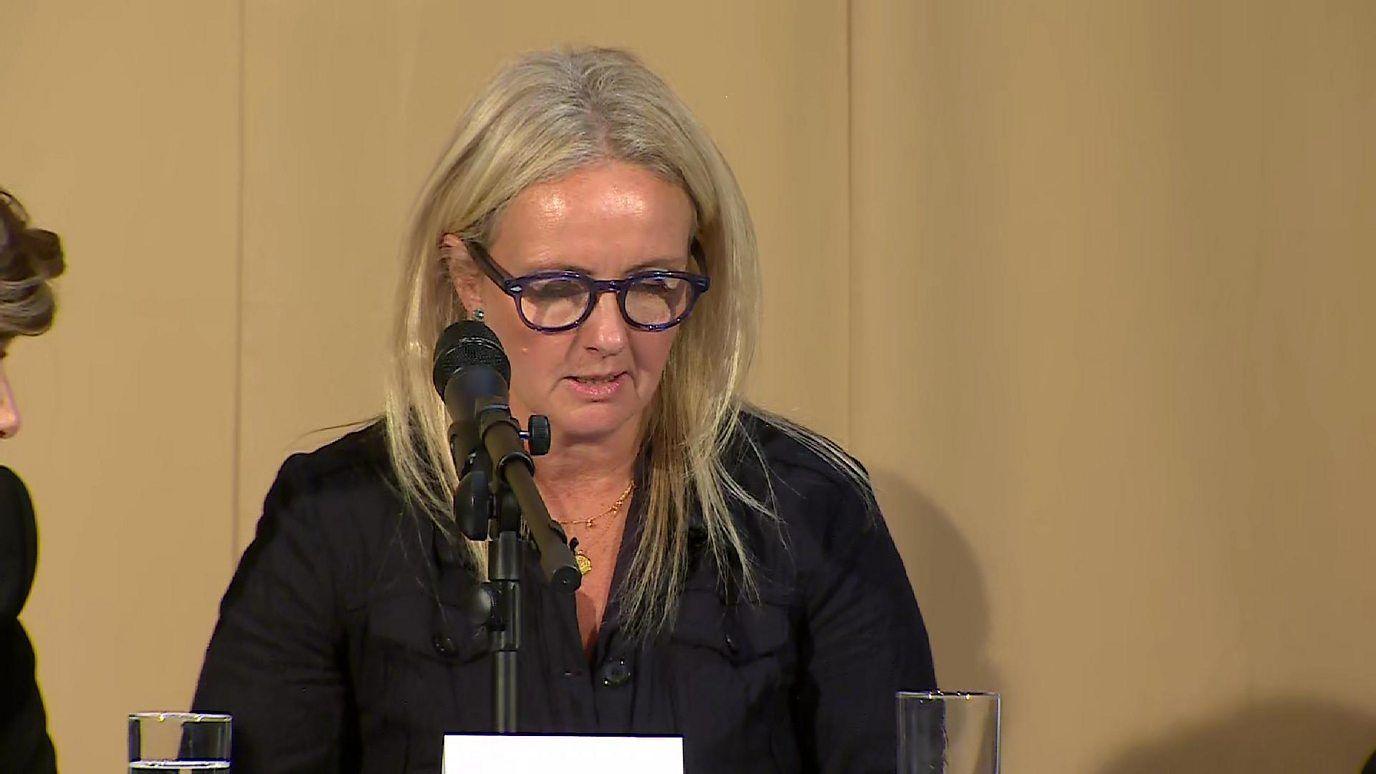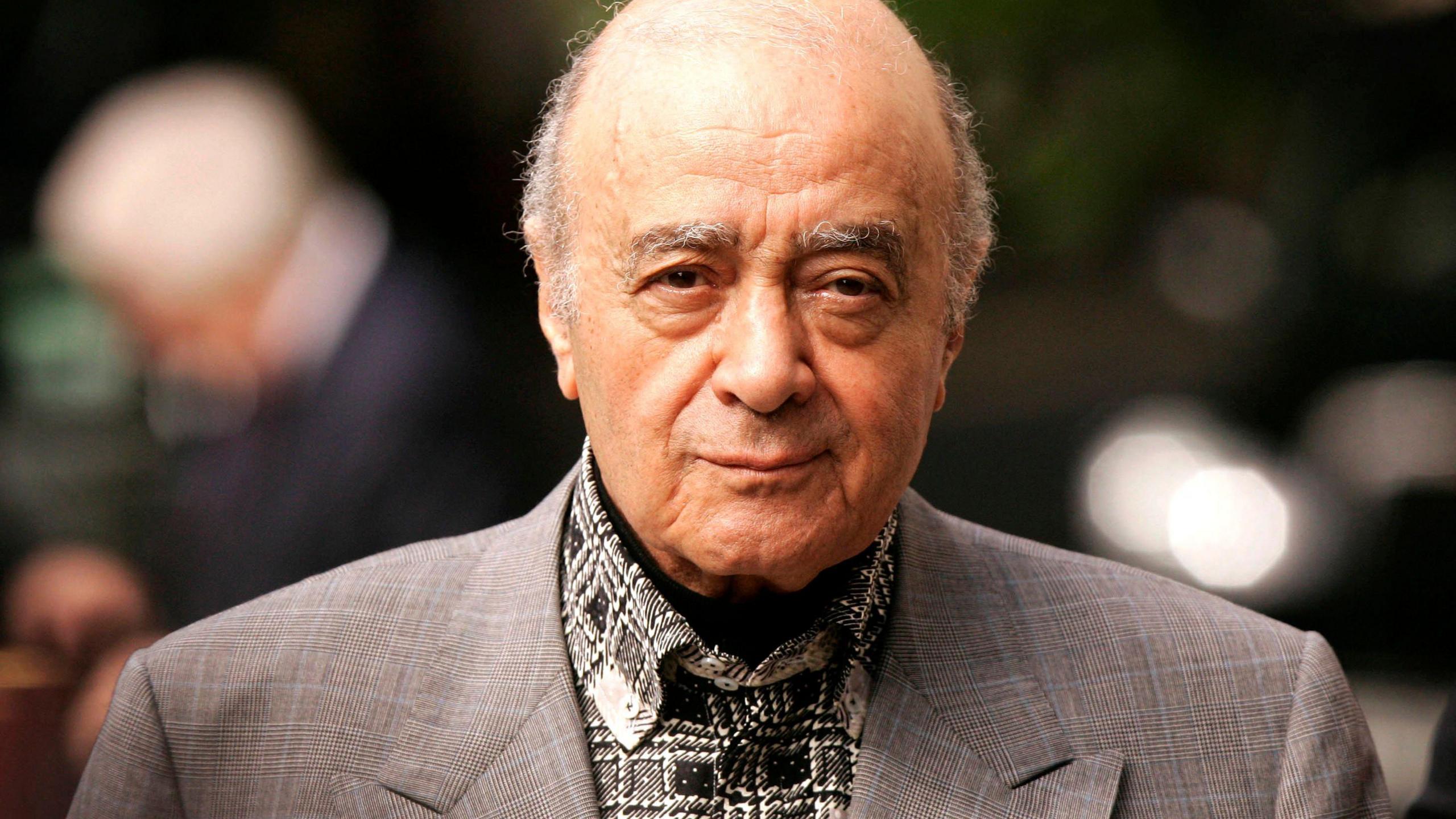Mohamed Al Fayed: How culture of fear at Harrods protected a predator

One of Fayed's victims says she was threatened by his security chief when he told her he knew where her parents lived
- Published
“I am walking around feeling terrified of somebody who is dead,” explains Gemma, who has been reliving the moment when she says Mohamed Al Fayed raped her.
“He just had that power – I am petrified of someone who is no longer alive”.
She is among more than 20 women who told us the former Harrods owner sexually assaulted or raped them while they worked at the luxury London department store.
Many of them describe being imprisoned by a similar sense of fear; it is what kept them from coming forward for so many years.
Some were worried our documentary team might have been secretly working for the businessman’s associates when we first contacted them after his death last August.
Even after we provided assurances, they were concerned about how those close to him might react. There were lots of conversations about what might happen if our meetings were discovered.
We could sense their paranoia about the consequences of speaking out and the fear engendered in them by Fayed and the people who worked for him. In these circumstances, the bravery of these women is to be applauded even more.
Fayed was a man who used money and power throughout his life to bully and intimidate his way into getting what he wanted.
In the early 1990s, a government investigation concluded he had lied when he bought Harrods. He deployed dirty tricks against Tiny Rowland, his rival in buying the business, and was even accused of stealing items from his safety deposit box at the store.
A few years later, he caused the downfall of Tory politicians when he went public about bribing them to ask questions for him in parliament. He was not a man to be crossed.
Warning: this story contains details some may find distressing.
At Harrods, his personal fiefdom, he created an intimidating atmosphere where a phalanx of bodyguards protected him around the clock and where surveillance equipment was installed in backroom offices.
'He knew where my parents lived'
Alice, not her real name, said she received a phone call from Fayed’s head of security after, in 1995, he found out she had spoken to a journalist about their boss’s behaviour. She says she was 16 years old when Fayed sexually assaulted her.
“He said that I wasn't to be involved in the article and that, if I went against his advice, I should be aware that he knew where my parents lived - It turned me cold.”
Alice didn’t speak about her experiences again until she gave an interview to the BBC recently.
Fayed also corrupted the store’s HR department, which played a role in promoting young women from the shop floor to work in his executive suite - aware of his interest in them.
“We all watched each other walk through that door thinking, ‘you poor girl, it's you today’ and feeling utterly powerless to stop it,” recalls Alice.
We now know that in Gemma’s case a senior member of the Harrods HR department was present in 2009 when lawyers destroyed evidence of his sexual misconduct against her. This included messages he had sent her and tapes of nasty voicemails.
Gemma began working as one of Fayed’s personal assistants in 2007. She says Fayed raped her at his villa in France after she woke to find him next to her bed.
After it was over, she cried while he got up and told her aggressively to wash herself with Dettol. “Obviously he wanted me to erase any trace of him being anywhere near me,” she explains.
Gemma describes how a shredding truck was sent to her lawyer's office
Many of the women raped and sexually assaulted by Fayed decided to speak out only after his death because they felt it was finally safe enough to do so.
But that wasn’t the only reason. Some were angered by the positive way he was portrayed in the Netflix series The Crown.
They thought this was a rewriting of history and the truth about him needed to be revealed.
“It feels good to change the legacy of a man who really was a monster,” says Natacha, another women subjected to Fayed’s behaviour. “I don't think we really comprehended that at the time.”
Speaking at a press conference on Friday, the morning after our documentary was broadcast, she said: “I finally have the opportunity and freedom to speak up. I no longer feel afraid so I speak for my daughters, my nieces … and all the survivors of sexual abuse in this room today who were silenced for so many years.”
Around 20 of Fayed’s victims had gathered at the event to listen to lawyers lay out the details of his alleged crimes. Others were still too afraid to come.
Mike Radford is executive producer of Al Fayed: Predator at Harrods
If you are affected by issues of sexual assault you can contact the BBC Action Line here

A BBC investigation into allegations of rape and attempted rape by Mohamed Al Fayed, the former owner of Harrods. Did the luxury store protect a billionaire predator?


Listen to World of Secrets, Season 4: Al Fayed, Predator at Harrods on BBC Sounds. If you’re outside the UK, you can listen wherever you get your podcasts, external, external.

Get in touch
Have you been affected by this story?
Related topics
- Published20 September 2024

- Published20 September 2024

- Published20 September 2024
